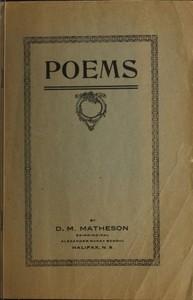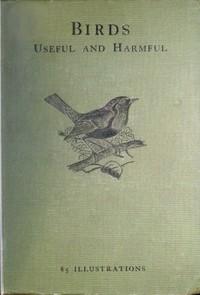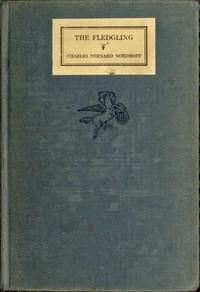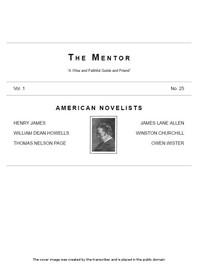Read this ebook for free! No credit card needed, absolutely nothing to pay.
Words: 189948 in 39 pages
This is an ebook sharing website. You can read the uploaded ebooks for free here. No credit cards needed, nothing to pay. If you want to own a digital copy of the ebook, or want to read offline with your favorite ebook-reader, then you can choose to buy and download the ebook.


: On the Philosophy of Discovery Chapters Historical and Critical by Whewell William - Science History; Science Philosophy; Philosophy History
The chapters marked thus + have appeared in other works.
PAGE
APPEND. A. OF THE PLATONIC THEORY OF IDEAS 403 B. ON PLATO'S SURVEY OF THE SCIENCES 417 BB. ON PLATO'S NOTION OF DIALECTIC 429 C. OF THE INTELLECTUAL POWERS ACCORDING TO PLATO 440 D. CRITICISM OF ARISTOTLE'S ACCOUNT OF INDUCTION 449 E. ON THE FUNDAMENTAL ANTITHESIS OF PHILOSOPHY 462 F. REMARKS ON A REVIEW OF THE PHILOSOPHY OF THE INDUCTIVE SCIENCES 482 G. ON THE TRANSFORMATION OF HYPOTHESES IN THE HISTORY OF SCIENCE 492 H. ON HEGEL'S CRITICISM OF NEWTON'S PRINCIPIA 504 Appendix to the Memoir on Hegel's Criticism of Newton's Principia 513 K. DEMONSTRATION THAT ALL MATTER IS HEAVY 522
ON THE PHILOSOPHY OF DISCOVERY.
W?r' nicht das Auge sonnenhaft Wie k?nnten wir das Licht erblicken? Lebt' nicht in uns des Gottes eigne Kraft Wie k?nnte uns das G?ttliche entz?cken? GOETHE.
Were nothing sunlike in the Eye How could we Light itself descry? Were nothing godlike in the Mind How could we God in Nature find?
INTRODUCTION.
I am far from undertaking, or wishing, to review the whole series of opinions which thus come under our notice; and I do not even attempt to examine all the principal authors who have written on such subjects. I merely wish to select some of the most considerable forms which, such opinions have assumed, and to point out in some measure the progress of truth from age to age. In doing this, I can only endeavour to seize some of the most prominent features of each time and of each step, and I must pass rapidly from classical antiquity to those which we have called the dark ages, and from them to modern times. At each of these periods the modifications of opinion, and the speculations with which they were connected, formed a vast and tangled maze, the byways of which our plan does not allow us to enter. We shall esteem ourselves but too fortunate, if we can discover the single track by which ancient led to modern philosophy.
I must also repeat that my survey of philosophical writers is here confined to this one point,--their opinions on the nature of knowledge and the method of science. I with some effort avoid entering upon other parts of the philosophy of those authors of whom I speak; I knowingly pass by those portions of their speculations which are in many cases the most interesting and celebrated;--their opinions concerning the human soul, the Divine Governor of the world, the foundations or leading doctrines of politics, religion, and general philosophy. I am desirous that my reader should bear this in mind, since he must otherwise be offended with the scanty and partial view which I give in this place of the philosophers whom I enumerate.
PLATO.
There would be small advantage in beginning our examination earlier than the period of the Socratic School at Athens; for although the spirit of inquiry on such subjects had awakened in Greece at an earlier period, and although the peculiar aptitude of the Grecian mind for such researches had shown itself repeatedly in subtle distinctions and acute reasonings, all the positive results of these early efforts were contained in a more definite form in the reasonings of the Platonic age. Before that time, the Greeks did not possess plain and familiar examples of exact knowledge, such as the truths of Arithmetic, Geometry, Astronomy and Optics became in the school of Plato; nor were the antitheses of which we spoke above, so distinctly and fully unfolded as we find them in Plato's works.
It would seem that what the author here describes as the most perfect form of exposition, is that which refers each object to its place in a classification containing a complete series of subordinations, and which gives a definition of each class. We have repeatedly remarked that, in sciences of classification, each new definition which gives a tenable and distinct separation of classes is an important advance in our knowledge; but that such definitions are rather the last than the first step in each advance. In the progress of real knowledge, these definitions are always the results of a laborious study of individual cases, and are never arrived at by a pure effort of thought, which is what Plato appears to have imagined as the true mode of philosophizing. And still less do the advances of other sciences consist in seizing at once upon the highest generality, and filling in afterwards all the intermediate steps between that and the special instances. On the contrary, as we have seen, the ascents from particular to general are all successive; and each step of this ascent requires time, and labour, and a patient examination of actual facts and objects.
Free books android app tbrJar TBR JAR Read Free books online gutenberg
More posts by @FreeBooks


: Birds useful and birds harmful by Herman Ott Owen J A Jean Allan Cs Rgey Titusz Illustrator - Birds





